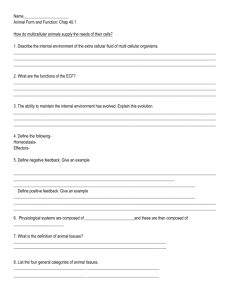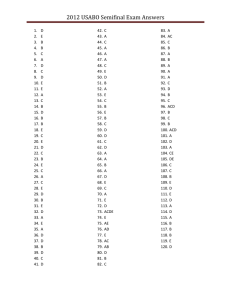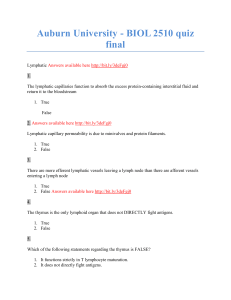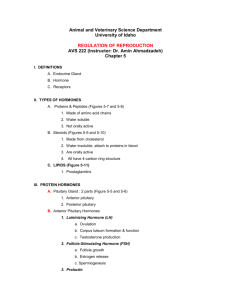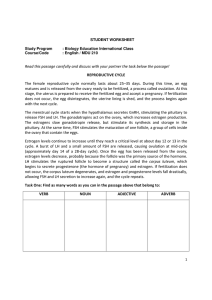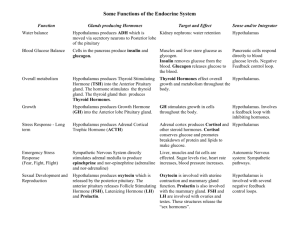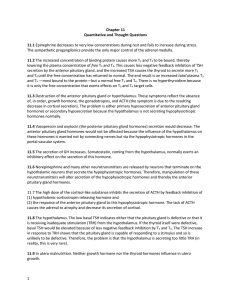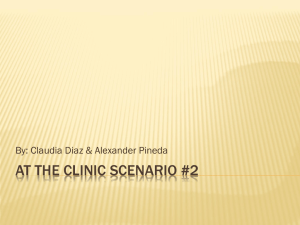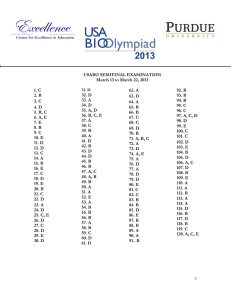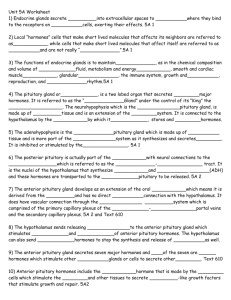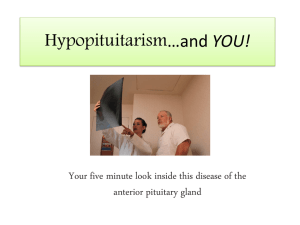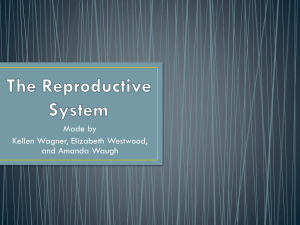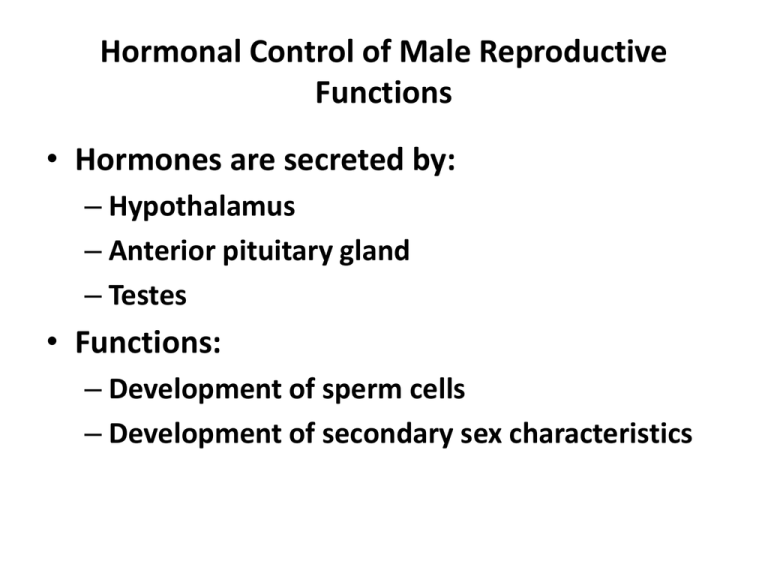
Hormonal Control of Male Reproductive
Functions
• Hormones are secreted by:
– Hypothalamus
– Anterior pituitary gland
– Testes
• Functions:
– Development of sperm cells
– Development of secondary sex characteristics
Hypothalamic and Pituitary Hormones
• Hypothalamus secretes gonadotropinreleasing hormone (GnRH) to anterior
pituitary gland
• In response, anterior pituitary gland
secretes gonadotropins:
1. Luteinizing hormone (LH)
2. Follicle-stimulating hormone (FSH), aka
interstitial cell-stimulating hormone (ICSH)
Hypothalamic and Pituitary Hormones,
continued…..
• FSH (ICSH) promotes development of
___________.
• Testicular interstitial cells secrete male sex
hormones.
• LH stimulates supporting cells of
seminiferous tubules to respond to
testosterone.
Hypothalamic and Pituitary Hormones,
continued…..
• FSH + testosterone + supporting cells
stimulate spermatogenic cells to give rise to
______________.
• Supporting cells secrete inhibin, a hormone
which inhibits the anterior pituitary gland,
preventing secretion of FSH.
Male Sex Hormones
• Called “Androgens” (???)
• Where are they produced?
• Most in testicular interstitial cells, but small
amounts in adrenal cortex
• What is the main male sex hormone?
• Testosterone production begins before birth,
continues a few weeks after, and then ceases
until puberty.
Actions of Testosterone
• Stimulates enlargement of testes and male
accessory organs
• Stimulates development of male secondary
sex characteristics:
1. Increased growth of body hair
2. Enlargement of the larynx and thickening of
the vocal cords
3. Thickening of the skin
4. Muscle growth, widening of shoulders,
narrowing of waist
5. Thickening and strengthening of bones
Actions of Testosterone, continued…..
• Increases rate of cellular metabolism
• Increases rate of RBC production
Regulation of Male Sex Hormones
• More testosterone = more developed
secondary sex characteristics
• Increased levels of testosterone inhibit the
hypothalamus.
• What effects would inhibition of the
hypothalamus have?

